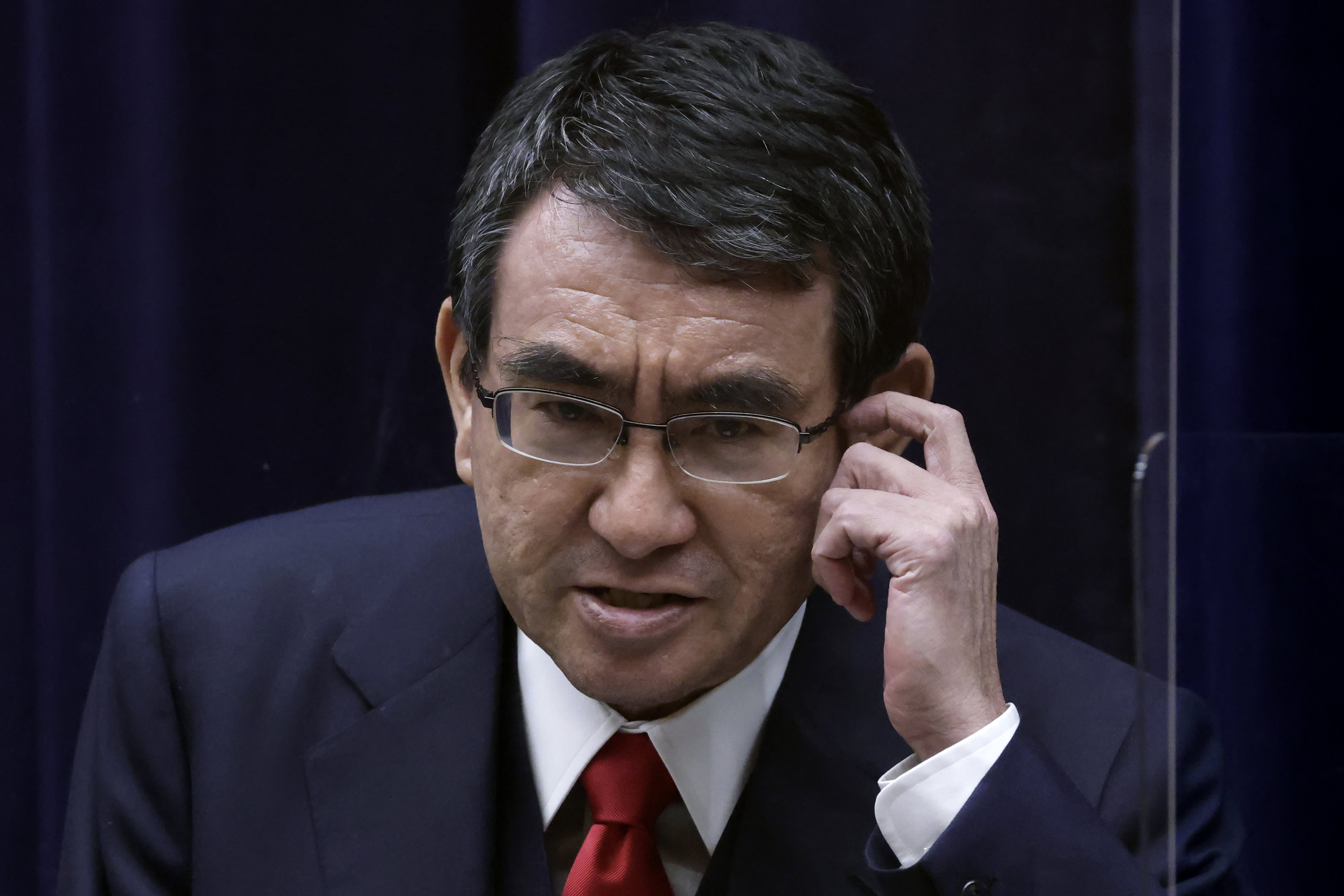
Taro Kono, Japan’s regulatory reform and vaccine minister, speaks from behind a transparent screen during a news conference in Tokyo, Japan, on Tuesday, Feb. 16, 2021.
Kiyoshi Ota | Bloomberg via Getty Images
Taro Kono, the minister in charge of Japan’s vaccine push, currently leads popular opinion polls among candidates that could become the country’s next leader.
Kono gained 31.9% support from respondents in a nationwide telephone survey over the weekend, according to local news agency Kyodo News. Another survey conducted by Yomiuri Shimbun daily also showed Kono being voted the most suitable person to take over, Reuters reported.
Still, the minister himself has yet to officially confirm his intention to seek the leadership of Japan’s ruling Liberal Democratic Party.
On Friday, Prime Minister Yoshihide Suga effectively paved the way for a new leader after announcing he will not be running in the upcoming leadership election. Prior to the announcement, Suga had come under fire for his handling of the Covid situation in Japan, with multiple parts of the country currently under a state of emergency.
Suga stepping aside sets the stage for a “generational change” inside the LDP, according to Jesper Koll, senior advisor at WisdomTree.
Other known potential contenders in the upcoming LDP election include former foreign minister Fumio Kishida, former defense minister Shigeru Ishiba as well as former internal affairs minister Sanae Takaichi. Koll said the current field features “some very interesting and exciting” candidates, describing Kono as a “maverick” while Kishida and Takaichi represent the establishment.
Over the weekend, local media reported that Suga is set to back Kono to succeed him.
Skilled communicator
While the LDP appears poised to lose some seats in the upcoming lower house election, the winner of the party’s leadership race could change matters, Koll said. For example, he sees the LDP “very easily” securing its supermajority in parliament if Kono is elected as leader of the party.
“Taro Kono has got the mass appeal, particularly amongst the younger generation here in Japan,” Koll said. “He’s very, very savvy and he does actually have some very good ideas on how to take the country forward.”
Center for American Progress’ Tobias Harris said Kono could succeed where Suga — as well as former Prime Minister Shinzo Abe — have failed: communication with the public.
Harris noted the vaccination minister has an active presence on Twitter. While Facebook and Instagram are the top social media platforms in the U.S. as well as worldwide, Twitter has a larger user base in Japan than those two rivals, according to eMarketer data.
Unlike Suga and Abe, Kono tweets in both Japanese and English on two separate accounts. His Japanese account boasts 2.3 million followers, eclipsing Suga’s roughly 466,400 followers. Even Abe, who was Japan’s longest-serving prime minister before he stepped down last year, has a smaller following of 2.2 million.
Kono’s sizable lead in polls suggests that the Japanese public has responded to him as a “quirky, accessible, really effective public communicator,” said Harris, senior fellow for Asia at the firm.
“I think in some ways, that might be what the public wants more than, you know, a technocrat,” Harris said.




